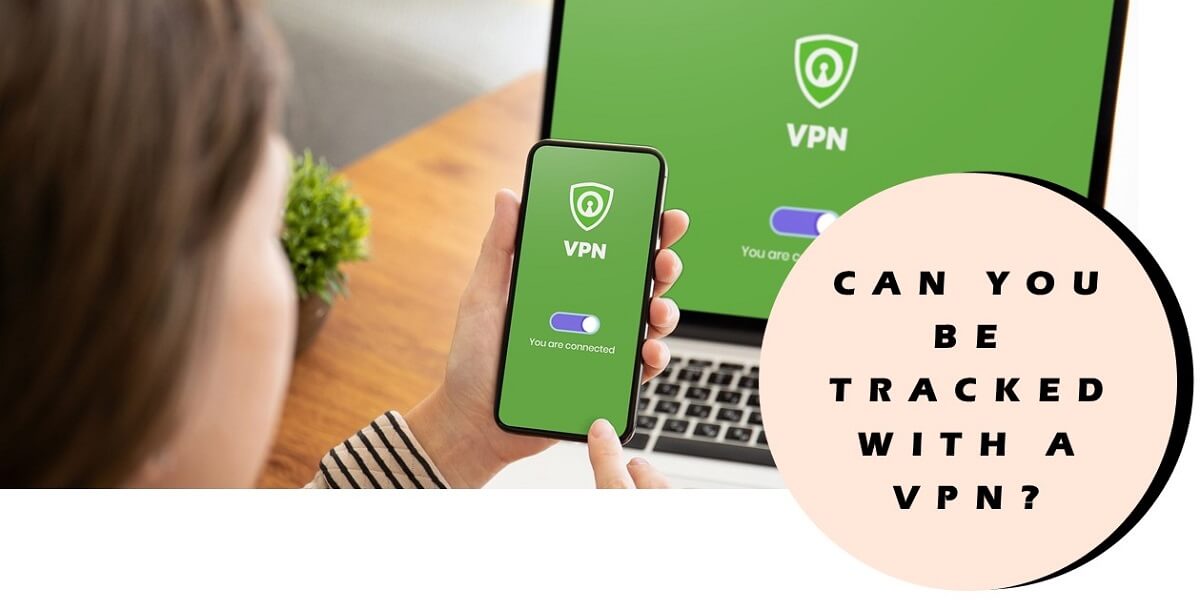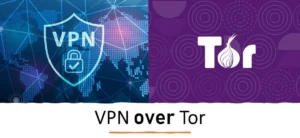Exploring the Efficacy of VPNs in Preserving Online Anonymity and Privacy
For individuals concerned about online privacy and data security, an often-asked question is whether VPNs truly provide adequate protection against tracking. VPNs conceal users’ IP addresses and encrypt network traffic, hampering the capacity of outside parties to surveil internet behaviors. However, some remain doubtful that internet service providers, governments, and other entities can circumvent VPN encryption to collect and analyze user data. This debate raises important considerations regarding VPNs’ true effectiveness in preventing tracking and data collection and users’ ability to achieve anonymity through their use. To determine the answers, it is crucial to understand how VPNs function, potential weaknesses that could be exploited, and any techniques that may allow for tracking users even with a VPN enabled. In this article we’ll explain all about “Can you be Tracked with a VPN”.
Key Takeaways
- VPNs mask your IP address and encrypt traffic, but they don’t make you fully anonymous.
- Your VPN provider can still see your real IP address and internet activity logs.
- Advanced tracking techniques like browser fingerprinting can de-anonymize VPN users.
- Using a trustworthy VPN from a privacy-centric jurisdiction is important for protection.
- Combining a VPN with other privacy tools like Tor and burner devices enhances anonymity further.
- There are legal limits on VPNs – they cannot enable serious criminal activity.
How VPNs Work to Provide Privacy
A VPN creates an encrypted tunnel between your device and a remote server operated by the VPN provider. Instead of connecting directly to websites, your traffic gets routed through the VPN server.
This provides several privacy advantages:
- Your real public IP address is hidden from the sites you visit; they see the VPN server’s IP address instead, masking your physical location.
- Your internet service provider cannot see which websites you are visiting since all they see is encrypted traffic to the VPN server.
- Public Wi-Fi snooping is blocked, as eavesdroppers cannot decrypt the VPN tunnel.
- VPN encryption prevents most types of malicious surveillance and man-in-the-middle attacks.
VPN Providers Can Still See Your Activity
While a VPN tunnels your connection through an encrypted pipe, the VPN provider itself sits at one end of that tunnel. This means the VPN company can potentially:
- Log your real IP address, linking it to your VPN traffic.
- Inspect and record your internet activity while routed through their servers.
- Analyze VPN connection timestamps to determine when and how often you are online.
- Obtain your personal information if required for billing and account management.
Advanced Tracking Techniques Remain a Threat
While a VPN hides your IP address and encrypts data, more advanced tracking techniques have been developed that can still identify VPN users:
Browser Fingerprinting
Your web browser has many unique settings and device configurations that create a fingerprint that can be tracked between websites to build profiles on your browsing habits. VPNs cannot hide this fingerprint. Anti-fingerprinting tools like the Tor browser provide better protection.
Web RTC Leaks
WebRTC is a browser technology that can reveal your real public IP address if misconfigured. This can leak your identity behind a VPN. Disabling WebRTC prevents this data exposure.
Using Logins Ties Activity to Your Identity
If you sign into the same accounts over a VPN as you normally do, companies can correlate that activity to build associations between your identified profile and anonymous VPN browsing. To prevent this linking, avoid logging into personal services over your VPN.
VPN Servers Can Be Blocked or Banned
Many organizations maintain lists of known VPN server IP addresses and block traffic originating from them. This disrupts access from privacy-focused VPN services. Choosing a VPN provider with a large, frequently updated network of servers can help bypass these blocks.
VPN Jurisdiction Matters for Avoiding Data Retention
Not all countries treat user privacy equally. Many surveil internet activity and require data retention. Choosing a VPN operating exclusively under privacy-friendly laws can provide assurance your activity logs will be discarded quickly:
- Switzerland and Panama have strong privacy laws and no mandatory data retention requirements.
- The Caribbean nations of the British Virgin Islands and Cayman Islands are also secure jurisdictions that do not retain user activity logs.
- The Principality of Monaco only requires one day of VPN logging before deletion.
- Iceland and Norway have banned the use of VPN activity logs in government surveillance.
Exploring the Vulnerabilities and Risks of VPNs
While VPNs provide valuable security and privacy advantages, they also possess certain limitations and potential risks. Some important considerations include:
- VPN vulnerabilities and potential risks: Like any technology, VPNs can have vulnerabilities that hackers or malicious actors can exploit. Maintaining your VPN software with the latest updates is imperative and opting for a reputable provider with a solid history of security best practices.
- DNS leaks and WebRTC vulnerabilities: DNS leaks can occur when your device bypasses the VPN and sends DNS queries directly to your ISP, potentially exposing your real IP address. Similarly, WebRTC (Web Real-Time Communication) vulnerabilities can inadvertently reveal your real IP address, bypassing the VPN protection. Configuring your device and VPN properly is essential to mitigate these risks.
- Malware and phishing attacks: While a VPN can protect your data during transmission, it does not provide complete protection against malware or phishing attacks. It is crucial to have robust antivirus software and exercise caution when clicking on suspicious links or downloading files.
- VPN usage and potential red flags: In some cases, the extensive use of a VPN or connecting to certain servers may raise suspicion from online platforms, leading to additional scrutiny or restrictions. This is particularly true when accessing websites or services that actively block VPN usage.
Using Other Anonymity Tools with a VPN
While VPNs provide a baseline of privacy, truly anonymizing your online activity requires layers of protection. Using a VPN in combination with other technologies enhances security:
The Tor Network
Tor encrypts traffic and bounces it through volunteer relays worldwide, fully concealing your identity. This also bypasses VPN blocking. Running Tor through a VPN tunnel provides optimal privacy.
Burner Devices
Using cheap laptops or mobile phones purchased with cash and not tied to your identity makes tracking more difficult. Never log into personal accounts on burner devices used over a VPN or Tor for maximum anonymity.
Tails and Linux
The Tails operating system routes all traffic over Tor and leaves no trace on the computer when shut down. Linux is also more secure than Windows or macOS. Using these OS options in conjunction with a VPN bolsters privacy.
Proxy Servers
Adding an extra layer of proxy servers between you and the VPN endpoint further enhances anonymity. Multi-hop configurations routed through multiple proxies and VPN servers provide robust coverage.
Limits on True VPN Anonymity
While VPNs certainly improve privacy substantially, there are legal limits on the extent of anonymity they provide. Specifically, VPNs cannot enable serious illegal activity. Some key points:
- VPN providers will log and report any criminal use of their service that violates terms of service or law. This includes piracy, hacking, fraud, and viewing banned content.
- Law enforcement can obtain warrants to force VPN companies to log and reveal customer identities in criminal cases. VPN privacy is not above the law.
- Governments are increasingly mandating VPN providers block access to certain blacklisted websites related to extremism, copyright piracy, child abuse, and other serious criminal content.
Final Thoughts
While a quality VPN provides immense protection for your browsing privacy and blocks the prying eyes of ISPs, advertisers, and mass surveillance efforts, users should have realistic expectations about the limits of VPN anonymity. Your VPN provider can still monitor your activities, advanced tracking techniques exist, and legal oversight applies in criminal cases.
Combining a secure VPN with Tor and other privacy technologies provides the strongest anonymity possible within the legal limits of the technology. However, for general secure web access from home or on public Wi-Fi, a good VPN remains a powerful tool for maintaining privacy.
FAQs about VPN Tracking
Let’s address some frequently asked questions regarding VPN tracking:
Can a VPN prevent the government from spying on me?
VPNs encrypt your traffic, preventing dragnet surveillance from recording your browsing activity. However, government agencies can still subpoena VPN providers for logs and identifying information on specific targeted individuals if warranted during criminal investigations.
Does a VPN stop my internet provider from throttling me?
Yes, using a VPN prevents your internet service provider from seeing the sites you visit and the type of traffic you are generating. This prevents discriminatory throttling practices based on analyzing your internet usage. The VPN tunnel encrypts the contents and hides it from your ISP.
Can I get hacked when using a VPN?
VPNs provide a robust barrier against most types of malicious attacks and hacking attempts while connected. However, vulnerabilities in a VPN provider’s apps or network could be exploited by sophisticated hackers to gain access to your real IP address or infiltrate your device or network. Proper antivirus and firewall software provide important additional protection.
Will a VPN protect me on public Wi-Fi hotspots?
Absolutely. Connecting through a VPN secures your browsing on public hotspots by encrypting traffic between your device and the VPN server. This prevents Wi-Fi snoopers from observing and recording data like passwords and account details. Public hotspots are very risky without a VPN.
Can the government see what I do on a VPN?
Due to encryption, the government cannot directly monitor what you do over a VPN in most democratic countries. However, they can still obtain VPN logs and customer information through legal means if investigating serious cybercrime. A VPN protects against mass surveillance but not targeted criminal probes.
Does a VPN work in China or Russia?
VPNs are very useful for bypassing censorship and restrictions in countries like China and Russia. However, these governments actively block many VPN services, so only some providers will work successfully there. Selecting a VPN with robust unblocking features is important for the highest chance of maintaining access.

 Verified A Professional Content Writer
Verified A Professional Content Writer
Riha Mervana is a professional content writer at SearchVPN.org, with extensive experience crafting engaging and informative content. She has established herself as an expert in the VPN industry, creating content that educates readers on the importance of online privacy and security.



